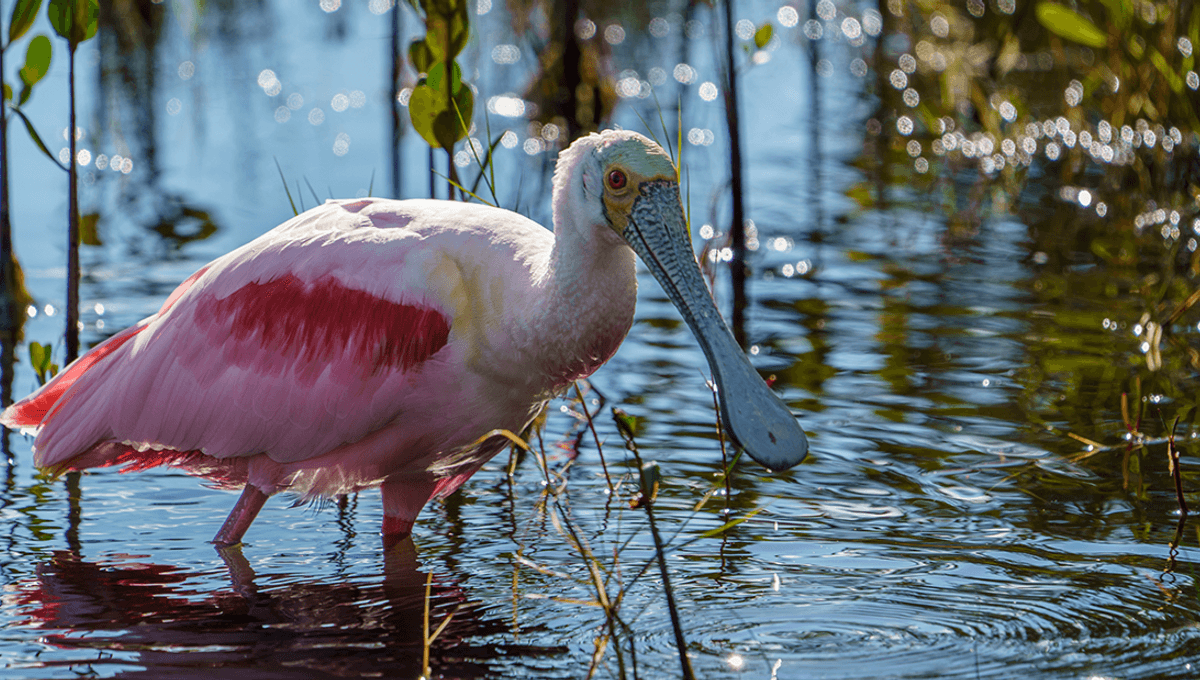
Watching birds in the wild has been found to have positive effects on your mental health as well as allowing you to spend time appreciating the great outdoors. Whether you see a snowy owl in Central Park or a bird that’s been missing since 1882, there is always something to be enjoyed. Recently, birders in the US state of Wisconsin have been delighted to see a roseate spoonbill hanging out near Green Bay, the first live sighting in the state in 178 years.
Roseate spoonbills are large wading birds with bright pink feathers and a long, large, flattened bill that gives them their distinctive name. They normally forage for invertebrates in shallow waters by swinging their heads from side to side. Adorably, spoonbill chicks are sometimes called teaspoons.
This sighting marks the first live record of a roseate spoonbill in the state of Wisconsin. Observations suggest that a dead roseate spoonbill was seen in Rock County in 1845 meaning this is the first time a roseate spoonbill, alive or dead, has been seen in the state in 178 years.
“I’ve been on cloud nine for days now,” Logan Lasee, who first spotted the roseate spoonbill, said in a statement to the Green Bay Press-Gazette. “I check almost every day now to see if it’s still around. I’ve had people who knew I’m the guy who found it come up to me. I felt kind of like a celebrity the last few days.”
The bird did not stick around in the same area for long as storms caused the pink plumage to disappear from view for a couple of days. Fortunately, it was then seen again in Ken Euers Nature Area.
It is thought the stormy weather could be the reason the bird ended up in Wisconsin in the first place. Typically, these birds live in warmer, more southern areas like Florida and Texas within the US, and their range extends down into Central and South America. In the 1860s, they were nearly wiped out in the US due to demand for their pink feathers by plume hunters, but have built back a population in these southern states according to the Audubon Society.
There’s no guarantee how long the bird will stay in the area but locals suggest that it is best to give the bird lots of space so everyone can have a chance to witness the new arrival.
“It’s a huge privilege for us to see an awesome bird like this in Wisconsin. We don’t want to put the bird in jeopardy,” Tom Prestby, a birdwatcher and friend of Logan, told the Green Bay Press-Gazette. “We want others to see it.”
Source Link: First Sighting Of Rare Pink Bird In Wisconsin In 178 Years Delights Birdwatchers